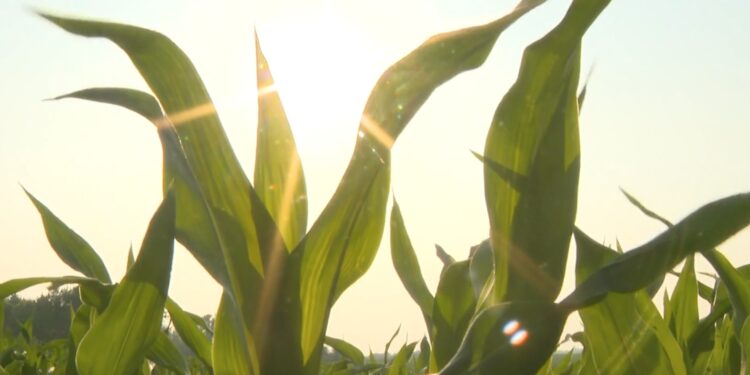LANSING, Mich. (WZMQ) – As a dangerous heat wave grips Michigan this week, experts say it’s not just high temperatures making conditions uncomfortable, it’s also the humidity, intensified by a natural agricultural process known as “corn sweat.”
The phenomenon, scientifically called evapotranspiration, occurs when crops such as corn release moisture into the air through their leaves. That added moisture can push dew points higher and increase the heat index, making it feel significantly hotter outside.
“Corn sweat is a real term. It actually exists,” said Tim Boring, director of the Michigan Department of Agriculture and Rural Development (MDARD). “That corn crop is pumping 5,000 gallons of water into the atmosphere per acre, per day. It does slightly move the needle on the humidity.”
While the effect is more pronounced in states with heavier corn production, such as Iowa and Illinois, Boring said areas in southern Michigan are also impacted, and it’s part of a broader conversation about how agriculture interacts with the environment.
“Agriculture affects the world around you in a lot of different ways,” Boring said. “Transpiration and water cycling from plants is a real phenomenon.”
As climate change drives more extreme weather events, including heat waves and heavy rain, MDARD is encouraging a shift toward regenerative agriculture, a farming approach focused on improving soil health, water retention, and long-term environmental sustainability.
“We’re talking about building resiliency into our systems, keeping water in the soil, helping crops handle drought, and even preventing downstream flooding,” Boring said.
He added that regenerative agriculture can also strengthen local food systems, boost rural economies, and improve the overall quality of life for Michigan residents.
“This is a step toward better food security on both a state and national level,” Boring said. “It’s about valuing local production and investing in communities.”
The National Weather Service has placed large portions of Michigan under a “major” HeatRisk category through the week, with some areas nearing “extreme” levels due to high heat and humidity. Residents are advised to stay hydrated, limit outdoor activity, and check on vulnerable neighbors.









